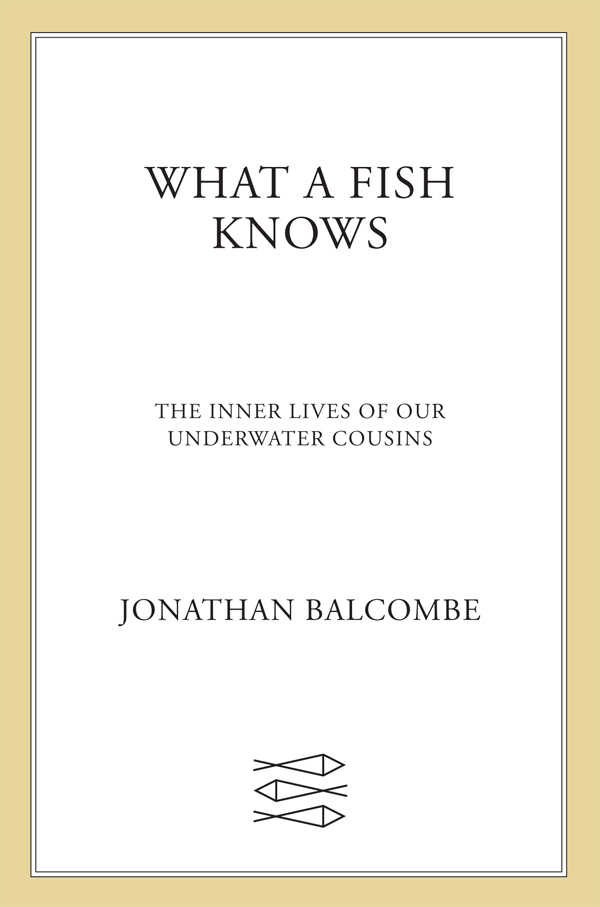Тревожное поколение. Как Великое подключение детства вызывает эпидемию душевных болезней - Джонатан Хайдт
Книгу Тревожное поколение. Как Великое подключение детства вызывает эпидемию душевных болезней - Джонатан Хайдт читаем онлайн бесплатно полную версию! Чтобы начать читать не надо регистрации. Напомним, что читать онлайн вы можете не только на компьютере, но и на андроид (Android), iPhone и iPad. Приятного чтения!
Шрифт:
Интервал:
Закладка:
Grigoriev, A. I., & Egorov, A. D. (1992). General mechanisms of the effect of weightlessness on the human body. Advances in Space Biology and Medicine, 2, 1–42. doi.org/10.1016/s1569–2574(08) 60016-7
Guisinger, S., & Blatt, S. J. (1994). Individuality and relatedness: Evolution of a fundamental dialectic. American Psychologist, 49 (2), 104–111. doi.org/10.1037/0003-066X.49.2.104
Guo, N., Tsun Luk, T., Wu, Y., Lai, A. Y., Li, Y., Cheung, D. Y. T., Wong, J. Y., Fong, D. Y. T., & Wang, M. P. (2022). Between- and within-person associations of mobile gaming time and total screen time with sleep problems in young adults: Daily assessment study. Addictive Behaviors, 134, 107408. doi.org/10.1016/j. addbeh.2022.107408
Haapala, E. A., Väistö, J., Lintu, N., Westgate, K., Ekelund, U., Poikkeus, A. – M., Brage, S., & Lakka, T. A. (2017). Physical activity and sedentary time in relation to academic achievement in children. Journal of Science and Medicine in Sport, 20 (6), 583–589. doi.org/10.1016/j. jsams.2016.11.003
Haidt, J. (2012). The righteous mind: Why good people are divided by politics and religion. Pantheon.
Haidt, J. (2023, 23 февраля). Social media is a major cause of the mental illness epidemic in teen girls. Here's the evidence. After Babel. www.afterbabel.com/p/social-media-mental-illnessepidemic
Haidt, J. (2023, 9 марта). Why the mental health of liberal girls sank first and fastest. After Babel. www.afterbabel.com/p/mental-health-liberal-girls
Haidt, J. (2023, 17 апреля). Why some researchers think I'm wrong about social media and mental illness. After Babel. www.afterbabel.com/p/why-some-researchers-think-im-wrong
Haidt, J., & George, E. (2023, 12 апреля). Do the kids think they're al-right? After Babel. www.afterbabel.com/p/do-the-kids-think-theyre-alright
Haidt, J., Park, Y. J., & Bentov, Y. (ongoing). Free play and mental health: A collaborative review. Unpublished manuscript, New York University. anxiousgeneration.com/reviews
Haidt, J., & Rausch, Z. (ongoing). Alternative hypotheses to the adolescent mental illness crisis: A collaborative review. Unpublished manuscript, New York University. anxiousgeneration.com/reviews
Haidt, J., & Rausch, Z. (ongoing). The coddling of the Canadian mind? A collaborative review. Unpublished manuscript, New York University. anxiousgeneration.com/reviews
Haidt, J., & Rausch, Z. (ongoing). The effects of phone-free schools: A collaborative review. Unpublished manuscript, New York University. anxiousgeneration.com/reviews
Haidt, J., & Rausch, Z. (ongoing). The impact of screens on infants, toddlers, and preschoolers: A collaborative review. Unpublished manuscript, New York University. anxiousgeneration.com/reviews
Haidt, J., Rausch, Z., & Twenge, J. (ongoing). Adolescent mood disorders since 2010: A collaborative review. Unpublished manuscript, New York University. anxiousgeneration.com/reviews
Haidt, J., Rausch, Z., & Twenge, J. (ongoing). Social media and mental health: A collaborative review. Unpublished manuscript, New York University. tinyurl.com/SocialMediaMentalHealthReview
Halldorsdottir, T., Thorisdottir, I. E., Meyers, C. C. A., Asgeirsdottir, B. B., Kristjansson, A. L., Valdimarsdottir, H. B., Allegrante, J. P., & Sigfusdottir, I. D. (2021). Adolescent well-being amid the COVID-19 pandemic: Are girls struggling more than boys? JCPP Advances, 1 (2), Article e12027. doi.org/10.1002/jcv2.12027
Haltigan, J. D., Pringsheim, T. M., & Rajkumar, G. (2023). Social media as an incubator of personality and behavioral psycho pathology: Symptom and disorder authenticity or psychosomatic social contagion? Comprehensive Psychiatry, 121, Article 152362. doi.org/10.1016/j.comppsych.2022.152362
Hamilton, J. P., Farmer, M., Fogelman, P., & Gotlib, I. H. (2015). Depressive rumination, the default mode network, and the dark matter of clinical neuroscience. Biological Psychiatry, 78 (4), 224–230. doi.org/10.1016/j. biopsych.2015.02.020
Hamm, P. B., Billica, R. D., Johnson, G. S., Wear, M. L., & Pool, S. L. (1998, February 1). Risk of cancer mortality among the Longitudinal Study of Astronaut Health (LSAH) participants. Aviation, Space, and Environmental Medicine, 69 (2), 142–144. pubmed. ncbi. nlm. nih. gov/9491253/
Hancock, J., Liu, S. X., Luo, M., & Mieczkowski, H. (2022). Psychological well-being and social media use: A meta-analysis of associations between social media use and depression, anxiety, loneliness, eudaimonic, hedonic, and social well-being. SSRN. dx. doi.org/10.2139/ssrn.4053961
Hari, J. (2022). Stolen focus: Why you can't pay attention – and how to think deeply again. Crown.
Harris, P. L. (1989). Children and emotion: The development of psychological understanding. Basil Blackwell.
Haslam, N. (2016). Concept creep: Psychology's expanding concepts of harm and pathology. Psychological Inquiry, 27 (1), 1–17. doi.org/10.1080/1047840X.2016.1082418
Hassett, J. M., Siebert, E. R., & Wallen, K. (2008). Sex differences in rhesus monkey toy preferences parallel those of children. Hormones and Behavior, 54 (3), 359–364. doi.org/10.1016/j. yhbeh.2008.03.008
Health Behaviour in School-Aged Children (HBSC). (2002–2018). HBSC study [Data sets]. University of Bergen. www.uib. no/en/hbscdata/113290/open-access
Hebb, D. O. (1949). The organization of behavior: A neuropsychological theory. Wiley.
Henrich, J. (2015). The secret of our success: How culture is driving human evolution, domesticating our species, and making us smarter. Princeton University Press.
Henrich, J., & Gil-White, F. J. (2001). The evolution of prestige: Freely conferred deference as a mechanism for enhancing the benefits of cultural transmission. Evolution and Human Behavior, 22 (3), 165–196. doi.org/10.1016/s1090–5138(00)00071-4
Higher Education Research Institute (HERI). (2023). CIRP freshman survey trends: 1966 to 2008 [Data sets]. heri. ucla. edu/data-archive/
Hillman, M., Adams, J., & Whitelegg, J. (1990). One false move…: A study of children's independent mobility. PSI.
Hisler, G., Twenge, J. M., & Krizan, Z. (2020). Associations between screen time and short sleep duration among adolescents varies by media type: Evidence from a cohort study. Sleep Medicine, 66, 92–102. doi.org/10.1016/j. sleep.2019.08.007
Hofferth, S. L., & Sandberg, J. F. (2001). How American children spend their time. Journal of Marriage and Family, 63 (2), 295–308. doi.org/10.1111/j.1741–3737.2001.00295.x
Hoffmann, M. D., Barnes, J. D., Tremblay, M. S., & Guerrero, M. D. (2022). Associations between organized sport participation and mental health difficulties: Data from over 11,000 US children and adolescents. PLoS ONE, 17 (6), Article e0268583. doi.org/10.1371/journal. pone.0268583
Howard, P. K. (2014). The rule of nobody: Saving America from dead laws and broken government. W. W. Norton.
Hsu, N., Badura, K. L., Newman, D. A., & Speach, M. E. P. (2021). Gender, «masculinity,» and «femininity»: A meta-analytic review of gender differences in agency and communion. Psychological Bulletin, 147 (10), 987–1011. doi.org/10.1037/bul0000343
Hummer, D. L., & Lee, T. M. (2016). Daily timing of the adolescent sleep phase: Insights from a cross-species comparison. Neuroscience and Biobehavioral Reviews, 70, 171–181. doi.org/10.1016/j. neubiorev.2016.07.023
Hunt, M. G., Marx, R., Lipson, C., & Young, J. (2018). No more FOMO: Limiting social media decreases loneliness and depression. Journal of Social and
Прочитали книгу? Предлагаем вам поделится своим отзывом от прочитанного(прослушанного)! Ваш отзыв будет полезен читателям, которые еще только собираются познакомиться с произведением.
Уважаемые читатели, слушатели и просто посетители нашей библиотеки! Просим Вас придерживаться определенных правил при комментировании литературных произведений.
- 1. Просьба отказаться от дискриминационных высказываний. Мы защищаем право наших читателей свободно выражать свою точку зрения. Вместе с тем мы не терпим агрессии. На сайте запрещено оставлять комментарий, который содержит унизительные высказывания или призывы к насилию по отношению к отдельным лицам или группам людей на основании их расы, этнического происхождения, вероисповедания, недееспособности, пола, возраста, статуса ветерана, касты или сексуальной ориентации.
- 2. Просьба отказаться от оскорблений, угроз и запугиваний.
- 3. Просьба отказаться от нецензурной лексики.
- 4. Просьба вести себя максимально корректно как по отношению к авторам, так и по отношению к другим читателям и их комментариям.
Надеемся на Ваше понимание и благоразумие. С уважением, администратор knigkindom.ru.
Оставить комментарий
-
 Гость Даша11 февраль 11:56
Для детей подросткового возраста.Героиня просто дура,а герой туповатый и скучный...
Лесная ведунья 3 - Елена Звездная
Гость Даша11 февраль 11:56
Для детей подросткового возраста.Героиня просто дура,а герой туповатый и скучный...
Лесная ведунья 3 - Елена Звездная
-
 Гость Таня08 февраль 13:23
Так себе ,ни интриги,Франциски Вудворд намного интересней ни сюжета, у Франциски Вундфорд намного интересней...
Это моя территория - Екатерина Васина
Гость Таня08 февраль 13:23
Так себе ,ни интриги,Франциски Вудворд намного интересней ни сюжета, у Франциски Вундфорд намного интересней...
Это моя территория - Екатерина Васина
-
 Magda05 февраль 23:14
Беспомощный скучный сюжет, нелепое подростковое поведение героев. Одолеть смогла только половину книги. ...
Госпожа принцесса - Кира Стрельникова
Magda05 февраль 23:14
Беспомощный скучный сюжет, нелепое подростковое поведение героев. Одолеть смогла только половину книги. ...
Госпожа принцесса - Кира Стрельникова










